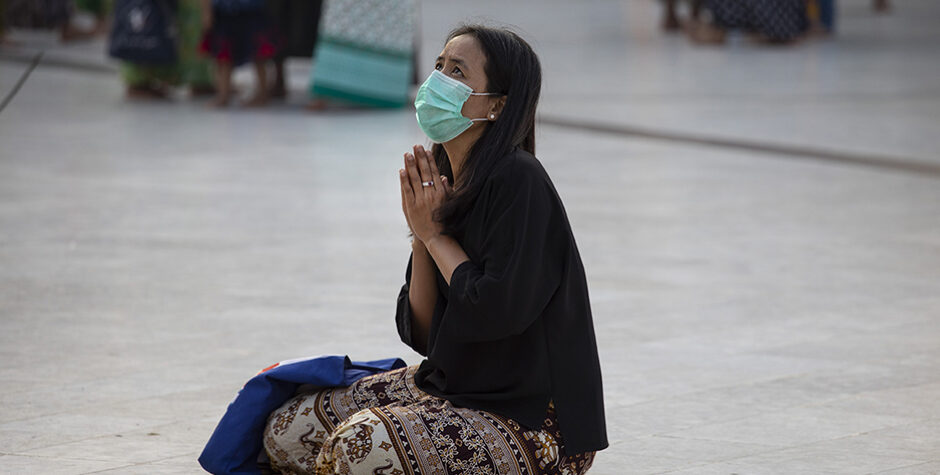The People of Burma, Including Christian Minorities, Need Our Attention and Our Help
On February 1, 2021, Burma (also known as Myanmar) experienced a military coup, yet another conflict in the weary and battle-worn country, and it is greatly affecting a people who are already some of the poorest in the world.
Burma, a southeastern Asian country bordered by India, Bangladesh, China, Laos, and Thailand, is home to over 54 million people and is a majority Buddhist country, with nearly 88% of the population practicing Buddhism. In contrast, only 6.2% of the population practice Christianity. The country is divided into fourteen states and divisions.
Since it gained its independence in 1948 from Japanese occupation, Burma has faced a long and complicated political history involving military control and political unrest. In 2018, Burma was ranked number 5 in the list of countries with the highest armed-conflict fatalities.
Over the last 74 years, “successive military dictatorships [have] killed thousands of their own people and displaced millions in resistance areas, while effectively strangling the political process in areas under their complete control.” The country has greatly struggled in its effort to transition from authoritarian rule to democracy.
Since 2011, the government in Burma has taken the form of a military-civilian hybrid government. Under the 2008 constitution, the military controls one-quarter of the parliamentary seats, in addition to controlling three ministries: defense, home affairs, and border affairs. Thus, the Burma Army has a very powerful and tangible presence in Burma’s government.
In November 2020, Burma held its national elections, and the National League for Democracy (NLD), led by Aung San Suu Kyi, won the election. However, prior to the election, the Union Election Commission “announced that ‘the elections [would] not be held in several constituencies where free and fair elections could not be held.’” The canceled elections were “mostly in parts of the country where restive ethnic minorities are dominant,” and led to the disenfranchisement of “[m]ore than 1.5 million people in [Burma’s] conflict-ridden areas . . . .”
The opposition party, which is backed by the Burma Army, refused to accept the results of the election, leading to the military coup which occurred on Monday, February 1, 2021. During the coup, the Burma Army took power, detained key leaders, including Suu Kyi, and declared a state of emergency. The Burma Army appointed former general Myint Swe as acting president.
According to reports, Myint Swe “is best known abroad for his role in the crackdown on 2007 pro-democracy protests and for his ties to still-powerful military leaders.” After appointing Swe as president, the Burma Army stated that “power will be transferred after ‘holding a free and fair election and the [one-year] emergency provisions period is complete.’”
The Biden Administration condemned the military coup and “warned [Burma’s] military officials . . . that it will ‘take action’ if they proceed with an apparent coup against the country’s civilian leaders.” And on February 10, 2021, President Biden announced that he had placed “sanctions on the military leaders who directed the coup . . . .”
This action on the part of the Burma Army exposes the fact that it is, and has been, the true power in Burma. While no power in Burma has proven great, the Burma Army is a cruel and unjust power that victimizes people on a daily basis. As we have reported to the U.N.:
In [Burma] today, Christians and other religious minorities face discrimination, persecution, and even ethnic cleansing. Civilians, who are not targeted because of their faith, also face violence and trauma because of the ongoing conflicts in [Burma]. Wa State is targeting Christians, in large part due to the influence of the Chinese government, which has encouraged the Wa government to shut down any kind of traceably foreign religious activity.
We also informed the U.N. that according to our on-the-ground sources, the “Burma Army uses rape as a weapon of war. Sexual violence has become a hallmark of the prolonged civil conflict and an indisputable tactic of the Burma Army against ethnic women. After several failed domestic and international agreements, Burma Army continues to rape with impunity . . . .”
The recent military coup has added to the difficulty of the everyday lives of the Burmese people. The Free Burma Rangers (FBR), a non-profit organization that works on the ground and at the front lines of conflict zones, is reporting on its current work with over 4,000 internally displaced persons (IDPs). These people are in desperate need of humanitarian assistance in the form of basic supplies. FBR has also reported to the ACLJ that the attacks are occurring not only in Karen, but also in Kachin and Shan states. Over 100,000 IDPs are in Arakan state, in addition to the over 750,000 Rohingya – a predominantly Muslim minority ethnic group – who have been persecuted and forced to flee to Bangladesh.
Immediate aid is necessary for the people of Burma who are under attack. But because the government is clearly not capable of helping its own people – and is now in the hands of the Burma Army, which has “been accused of genocide and other atrocities against minority groups” – foreign humanitarian assistance needs to be sent to on-the-ground ethnic groups and NGOs, like the Free Burma Rangers, that can directly provide that aid to the IDPs. Thankfully, President Biden has stated that the sanctions placed on the military leaders will not halt aid going to on-the-ground humanitarian groups that directly aid the people of Burma.
We are continuing our advocacy for the people of Burma and are preparing to present an oral statement later this month before the U.N. Human Rights Council to further draw international attention to the current and ongoing humanitarian crisis in Burma.
